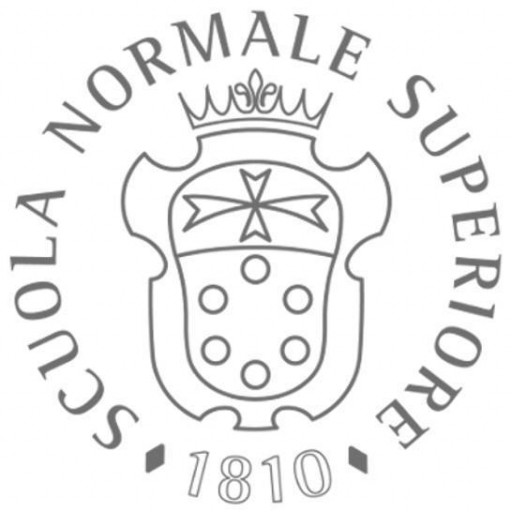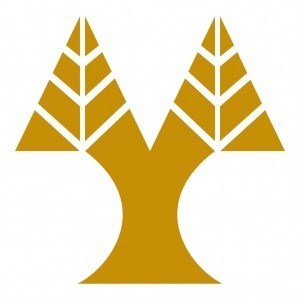Photos of university / #oxford_uni
The undergraduate degree program in Archaeology at the University of Oxford offers students a comprehensive and interdisciplinary study of human history through material remains, artifacts, and site excavations. This program provides an in-depth understanding of ancient and modern societies by combining theoretical knowledge with practical skills in excavation, analysis, and interpretation. Students explore a wide range of topics, including the archaeology of early humans, ancient civilizations, classical archaeology, prehistoric periods, and contemporary archaeological methods. The curriculum is designed to develop critical thinking, research proficiency, and fieldwork expertise, enabling students to analyze archaeological data within cultural, historical, and scientific contexts.
Throughout the course, students have the opportunity to learn from world-renowned experts and engage in hands-on fieldwork at archaeological sites both in the UK and abroad. The program emphasizes the importance of ethical considerations and conservation in archaeology, preparing graduates for careers in academia, heritage management, museums, cultural resource management, and related fields. Students also benefit from access to exceptional resources, including modern laboratories, extensive libraries, and archaeological collections maintained by the university.
In their final years, students undertake independent research projects, culminating in a dissertation that demonstrates their ability to apply archaeological methods and interpret complex data. The program encourages interdisciplinary approaches, integrating insights from anthropology, history, geology, and scientific techniques such as radiocarbon dating and archaeological imaging. Graduates of the Oxford Archaeology program are well-equipped with the knowledge, practical skills, and research experience needed to pursue advanced study or professional careers in archaeology and related disciplines. The program’s emphasis on rigorous training, critical analysis, and real-world applications makes it one of the most respected undergraduate archaeology courses in the UK and globally.
Flexibility is built into the MSt Archaeology degree to allow you to create your own unique courses that reflect your chosen area of study. You will take one of a range of core papers and an option paper and write a dissertation in a third subject, in a combination specific to your interests during the academic year. Most students choose to follow one of a number of streams, although this is not a formal requirement, including the archaeology of northern Eurasia, and environmental, European, maritime or Palaeolithic archaeology. If you are seeking a broader course then you may, if you wish, select one subject from among those offered in a number of cognate disciplines.
You will have a supervisor in your main area of interest, who will usually supervise your dissertation and may provide some other teaching, and will advise on option choices and monitor overall progress. Each member of the academic staff in archaeology offers at least one different subject in his or her areas of specialism over the year, but not all courses listed will be available every year.
Teaching is mainly through small-group tutorials or classes of one to five students, for which you will usually prepare short essays on a weekly basis, supplemented by a wide range of lecture courses and graduate seminars. The option is examined by a pair of pre-set essays, while the core paper is assessed by written three-hour examination at the end of the final term.
The dissertation of up to 10,000 words is the result of an individual research project and forms the assessment for one subject, submitted in the final term. It is on an approved topic relevant to the subject selected. There may be a viva voce examination for the whole course.
Applicants are normally expected to be predicted or have achieved a first-class or strong upper second-class undergraduate degree with honours (or equivalent international qualifications), as a minimum, in a relevant subject.
For applicants with a degree from the USA, the minimum GPA sought is 3.5 out of 4.0.
However, entrance is very competitive and most successful applicants have a GPA of 3.7 or above, a first-class degree or the equivalent.
Professional experience in archaeology may be taken into account.
If you hold non-UK qualifications and wish to check how your qualifications match these requirements, you can contact the National Recognition Information Centre for the United Kingdom (UK NARIC).
No Graduate Record Examination (GRE) or GMAT scores are sought.
- Official transcript(s)
- CV/résumé
- Personal statement: 300 words
- Written work: Two essays of 2,500 words each
- References/letters of recommendation: Three overall, all of which must be academic
ENGLISH LANGUAGE REQUIREMENTS
Higher level
|
est |
Standard level scores |
Higher level scores |
||
|
IELTS Academic |
7.0 | Minimum 6.5 per component | 7.5 | Minimum 7.0 per component |
|
TOEFL iBT |
100 |
Minimum component scores:
|
110 |
Minimum component scores:
|
| Cambridge Certificate of Proficiency in English (CPE) | 185 |
Minimum 176 per component |
191 |
Minimum 185 per component |
| Cambridge Certificate of Advanced English (CAE) | 185 |
Minimum 176 per component |
191 |
Minimum 185 per component |
Financing studies for the Archaeology program at the University of Oxford are primarily structured around a combination of tuition fees, scholarships, grants, and potentially student loans, depending on the student's nationality and financial circumstances. For domestic students, UK residents, or those eligible for UK government funding, tuition fees are set annually and may be partially covered by government-supported loans designed specifically for postgraduate students. These loans typically enable students to spread their payments over several years and include options for repayment once the student’s income surpasses a certain threshold.
International students pursuing the Archaeology program are required to pay the full international tuition fee, which varies annually and is generally higher than the fee for home students. To support international students, the university offers a range of scholarships, bursaries, and financial aid packages aimed at offsetting these costs. Competitive scholarships such as the Clarendon Fund provide substantial financial support to both UK and international graduate students and often cover tuition fees in full or provide a significant tuition fee reduction along with a living stipend.
In addition to academic scholarships, students are encouraged to seek external funding sources, including government-sponsored scholarships from their home country, private foundations, and international organizations dedicated to supporting students engaged in archaeological research and studies. The university’s Graduate Funding Database is a valuable resource that provides detailed information on available funding opportunities.
Students are also advised to consider other cost-saving options such as part-time work or research assistant positions offered by the university, which not only help supplementary financial needs but also enhance academic and professional experience. The university offers dedicated financial advising services to assist prospective and current students in planning their finances effectively. Since the cost of living in Oxford can be high, budgeting for accommodation, study materials, and daily expenses is essential, and students are encouraged to explore accommodation options early and apply for bursaries or housing grants where available.
Overall, the university's comprehensive approach to financing ensures that eligible students have access to the necessary financial support to successfully complete their Archaeology studies. Students are advised to consult the official university website and contact the university’s admissions and financial aid offices for the most current and personalized information on tuition fees, scholarship opportunities, and available funding options.
The undergraduate degree program in Archaeology at the University of Oxford offers students a comprehensive introduction to the study of human history through material remains. The course is designed to develop a deep understanding of archaeological methods, theories, and interpretations, combining fieldwork, laboratory analysis, and theoretical studies. Students have the opportunity to explore a wide range of topics, including prehistoric archaeology, classical archaeology, historical archaeology, and archaeological science. The program emphasizes critical thinking, analytical skills, and practical experience, preparing graduates for careers in archaeology, heritage management, museums, academia, or related fields.
Throughout the course, students can participate in excavations and research projects, often facilitated by partnerships with museums, archaeological institutions, and research centers. The teaching staff comprises leading experts in various archaeological disciplines, providing mentorship and guidance to support academic and professional development. The curriculum includes modules on ancient civilizations, archaeological theory, and the ethical considerations involved in archaeological practice, such as site preservation and repatriation.
The program also offers opportunities for specialization, allowing students to focus on particular regions, periods, or methodologies aligned with their interests and career aspirations. During their studies, students gain skills in archaeological surveying, excavation techniques, artifact analysis, and scientific dating methods. The university's resources, including access to extensive collections, laboratories, libraries, and digital archives, enrich the learning experience.
Graduates of the Oxford Archaeology program have succeeded in various careers, including research, consultancy, conservation, and education. The degree also provides a solid foundation for postgraduate study, whether at Oxford or elsewhere, enabling students to engage in advanced research projects. The university's vibrant academic community fosters a collaborative environment where students can participate in seminars, conferences, and field schools.
In sum, the Archaeology course at the University of Oxford combines rigorous academic coursework, practical field experience, and interdisciplinary research to prepare students for a diverse range of professional pathways. The program reflects Oxford’s commitment to excellence in teaching and research, ensuring that graduates are well-equipped with the knowledge and skills necessary to contribute meaningfully to the understanding of human history through archaeology.









